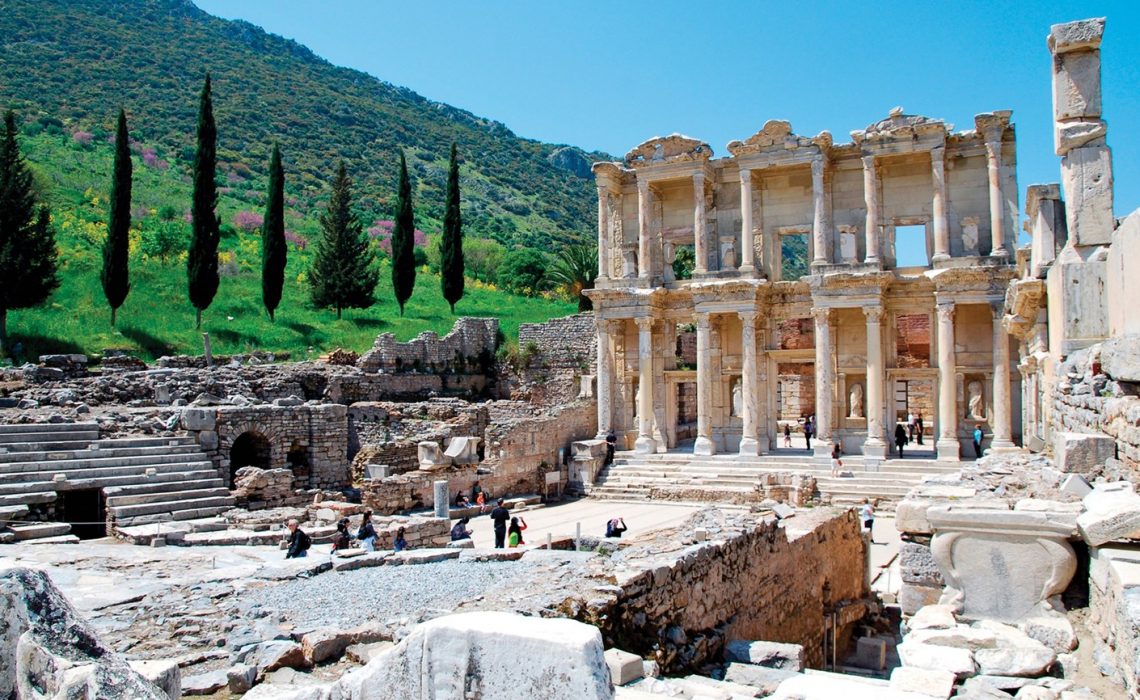
You might also like:
Following a referendum vote that stands to give more power to Turkish President Recep Tayyip Erdogan, the country’s tourism industry, once a powerful economic driver, is struggling to remain hopeful despite being caught up in the struggles of a nation already divided following a string of terror attacks and political unrest.
“Realistically, it might take several years [for Turkey] to recover,” Brian Tan, founder and CEO of the Mountain View, Calif.-based agency Zicasso, said last week. “Travelers will want to see a long period of stability without continual negative news in the media, such as suppression of journalists, more terror attacks, this week’s referendum, etc.”
Tan said Zicasso’s Turkey business for the first quarter of 2017 was down 60% compared with a year ago. But as travelers wait things out with Turkey, Zicasso is seeing an uptick in bookings for alternative destinations, including Greece, Morocco and Croatia.
Operators on the ground in Turkey expressed concern that the impact of the unrest on them and on the industry could linger for months, if not years.
“Each terrorist attack decreased the number of people traveling to Turkey,” said Okan Kutlu, managing director of Istanbul-based TSC Travel, who also works as a local tour guide.
Prior to 2015, TSC was hosting around 1,200 groups a year in Turkey. In 2015, that number was cut in half, and in 2016 the operator experienced an 80% drop in business. Consequently, the company has had to cut staff, something Kutlu said is becoming increasingly common in the Turkish tourism industry, leading to growing unemployment in the sector.
“This may cause a big economic crisis in Turkey in the near future,” Kutlu said.
The challenges facing Turkey’s tourism industry are reminiscent of those faced by Egypt, a destination that saw its tourism prospects disintegrate seemingly overnight. Similar to Egypt, Turkey’s tourism sector was experiencing a fair amount of growth and investment prior to the attacks and unrest that hit the country in 2015.
In order to see those investments come to fruition and for Turkey’s tourism industry to regain the status and profitability it once enjoyed, industry players agree that the country will need to head toward greater stability. Whether an empowered Erdogan will provide that stability remains to be seen.
Claudia Worth, Abercrombie & Kent’s product manager for Turkey, said whatever the eventual political realities, the impact on tourism won’t be felt immediately.
“I don’t think the outcome of the referendum will have an immediate effect on our business to Turkey as the new governmental system will not be in effect until 2019,” Worth said. “So there is time to watch and see how the country and its people adapt to the change.”
Kutlu’s hope is that travelers ultimately judge Turkey for its tourism assets, not for its politics.
“Turkey has a unique nature, history and beauties,” he said. “It also offers a good quality of tourist services at a lower cost than Europe, especially [compared with] Spain, Italy and France. So I am sure there will be an increase in demand if there are no more serious terrorist attacks.”
Kutlu added, “Otherwise, people do not really care about who is leading the country. Trump is leading the USA at the moment, so as a Turk should I be afraid of traveling to the USA?”
He observed that terror attacks in places as disparate as Paris, Brussels, Stockholm, Berlin, Boston, Florida, London and Nice prove that Turkey and Egypt are hardly alone in facing security issues and terror threats.
“The risk is everywhere, and nobody can guarantee it won’t happen in Spain or Italy next,” he said. “The fear feeds the terrorism.”
While Kutlu is hopeful that a certain degree of desensitization to security threats as a result of how widespread they have become could ultimately benefit Turkey’s ability to bounce back, Zicasso’s Tan said that from a client perspective it isn’t that simple.
“We haven’t seen evidence of travelers being desensitized,” Tan said. “Turkey unfortunately has the combination of both terrorism and [political] unrest. Most travelers will say, ‘Let’s wait. We can go elsewhere this year.'”
Nevertheless, for companies that take a longer view of Turkey’s tourism prospects, all is not lost.
Altamonte Springs, Fla.-based Tourico Holidays, a global travel distribution company, said it is continuing to invest in Turkey, especially as it sees growing demand for the Middle East, with destinations such as Morocco, Algeria and Saudi Arabia seeing year-over-year hotel reservations doubling and even tripling.
Ala Andriuta, Tourico Holidays’ product director of the Middle East, said, “Tourico is continuing to grow its product and sales team in Turkey and will not slow its investments in Turkey. The company forecasts that both inbound and outbound travel in Turkey will continue to grow in the long term, but unexpected circumstances or political unrest could potentially negatively affect the short term.”
Tourico saw reservations this year increase by 112% year over year across the Middle East, including in Egypt, which has so far experienced a 300% jump in 2017 reservations compared with last year. Yet, Turkey was the one destination where reservations remained flat.
“I do not expect a quick recovery for Turkey,” Kutlu said. “But people will [ultimately] get used to traveling [here despite] the safety warnings.”
A&K’s Worth added that unrest in the region, especially in Syria, is likely to continue to impede Turkey’s tourism.
“However, life in the street continues as normal,” she said. “And there’s absolutely no reason not to travel to Turkey right now.”
Sоurсе: travelweekly.com
